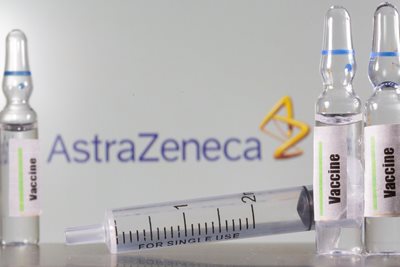–
AstraZeneca PHOTO: Reuters
–
The British-Swedish company AstraZeneca said on Wednesday that the risk of thromboembolism and thrombocytopenia, including rare thrombosis with thrombocytopenia (TTS), did not increase after the second dose of its coronavirus vaccine Vaxzevria.
AstraZeneca’s Covid-19 vaccine poses a small additional risk of rare low-platelet blood clots after the first dose and has no additional risk after the second dose, according to a study led and funded by the drugmaker amid concerns about the side effects of vaccination.
The study, published in the medical journal Lancet, found that the estimated incidence of thrombosis with thrombocytopenia syndrome (TTS) after the first dose of Vaxzevria was 8.1 per million in those who were immunized, AstraZeneca said.
After the second dose of Vaxzevria vaccine, invented with the help of the University of Oxford, this percentage is 2.3 per million, comparable to that observed in unvaccinated people, added the British-Swedish company.
Moreover, the probability of getting specific blood clots is eight times higher in those diagnosed with Covid-19 than in those who are not.
Sir Mene Pangalos, Executive Vice President of AstraZeneca, commented on the survey results:
“Unless TTS is identified after the first dose, these results support the administration of the two-dose Vaxzevria vaccine regimen, as indicated, to provide protection against Covid-19, including against increasing disturbing variants of the coronavirus.”
The European Medicines Agency (EMA) has been investigating TTS cases since March and has found a possible link to the Vaxzevria vaccine and the Johnson & Johnson single-dose vaccine against Covid-19. However, the EMA continues to maintain that the overall benefits of the two vaccines outweigh any risks arising from them.
– .



